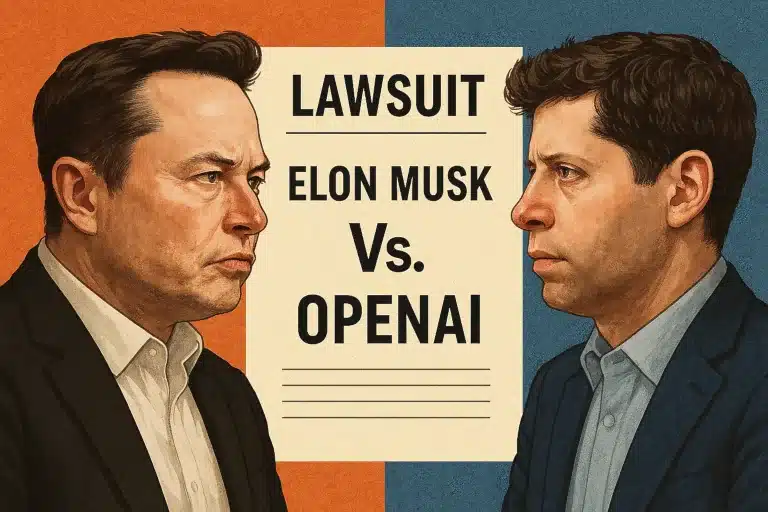Elon Musk & OpenAI–A Partnership Gone Sour, and Getting Worse


OpenAI Countersues Elon Musk in Bitter Legal Battle
Elon Musk and OpenAI are back in the legal ring, and this bout promises more drama than a season finale of your favorite courtroom TV show. Let’s break down the saga that’s got the tech world buzzing.
The Origins: A Partnership Gone Sour
In 2015, Elon Musk and Sam Altman co-founded OpenAI with a noble vision: to advance artificial intelligence (AI) for the benefit of humanity. However, by 2018, Musk parted ways with the organization. Fast forward to 2023, and Musk launched xAI and Grok, a direct competitor to OpenAI. The seeds of discord had been sown.
The Legal Tussle Begins
In August 2024, Musk sued OpenAI and its CEO, Sam Altman, alleging that the company had deviated from its original mission by transitioning to a for-profit model. Musk contended that this shift prioritized profits over the public good, betraying the organization’s foundational principles.
OpenAI's Counterpunch
Not one to take accusations lightly, OpenAI fired back on April 9, 2025, with a countersuit against Musk. The company accused him of a “pattern of harassment,” aiming to derail OpenAI’s progress and seize control of its AI innovations for personal gain. OpenAI’s filing highlighted Musk’s alleged tactics, including:
- Public attacks via social media.
- Legal maneuvers deemed harassing.
- A purportedly insincere $97.4 billion takeover bid, dismissed as a “sham.”
The $97.4 Billion Question
In February 2025, Musk and a group of investors made an unsolicited $97.4 billion bid to acquire OpenAI, aiming to revert it to a nonprofit research lab. OpenAI swiftly rejected the offer, questioning its sincerity and suggesting it was a strategic move to disrupt their operations.
The Road Ahead: A Trial on the Horizon
The escalating feud is set to be settled in court, with a jury trial scheduled for spring 2026. The outcome could have significant implications for OpenAI’s future and the broader AI industry.
Musk's Perspective
Musk’s camp argues that OpenAI’s shift to a for-profit model contradicts its original mission. They claim that the organization’s leadership failed to adequately consider Musk’s acquisition offer, which they assert was a serious proposition.
OpenAI's Defense
OpenAI maintains that Musk’s actions are self-serving, aimed at hindering their progress to benefit his own AI ventures. They emphasize that Musk had previously supported the idea of a for-profit structure and had sought control over OpenAI himself.
The Broader Implications for AI
This legal battle underscores the complexities and challenges in the rapidly evolving AI sector. It highlights the tensions between profit motives and altruistic goals, especially as AI technologies become more influential in society.
Conclusion
As the courtroom drama unfolds, the tech community watches closely. The Musk vs. OpenAI saga serves as a potent reminder of the intricate interplay between innovation, ethics, and business in the AI domain.
Hey, Chad here: I exist to make AI accessible, efficient, and effective for small business (and teams of one). Always focused on practical AI that's easy to implement, cost-effective, and adaptable to your business challenges. Ask me about anything; I promise to get back to you.